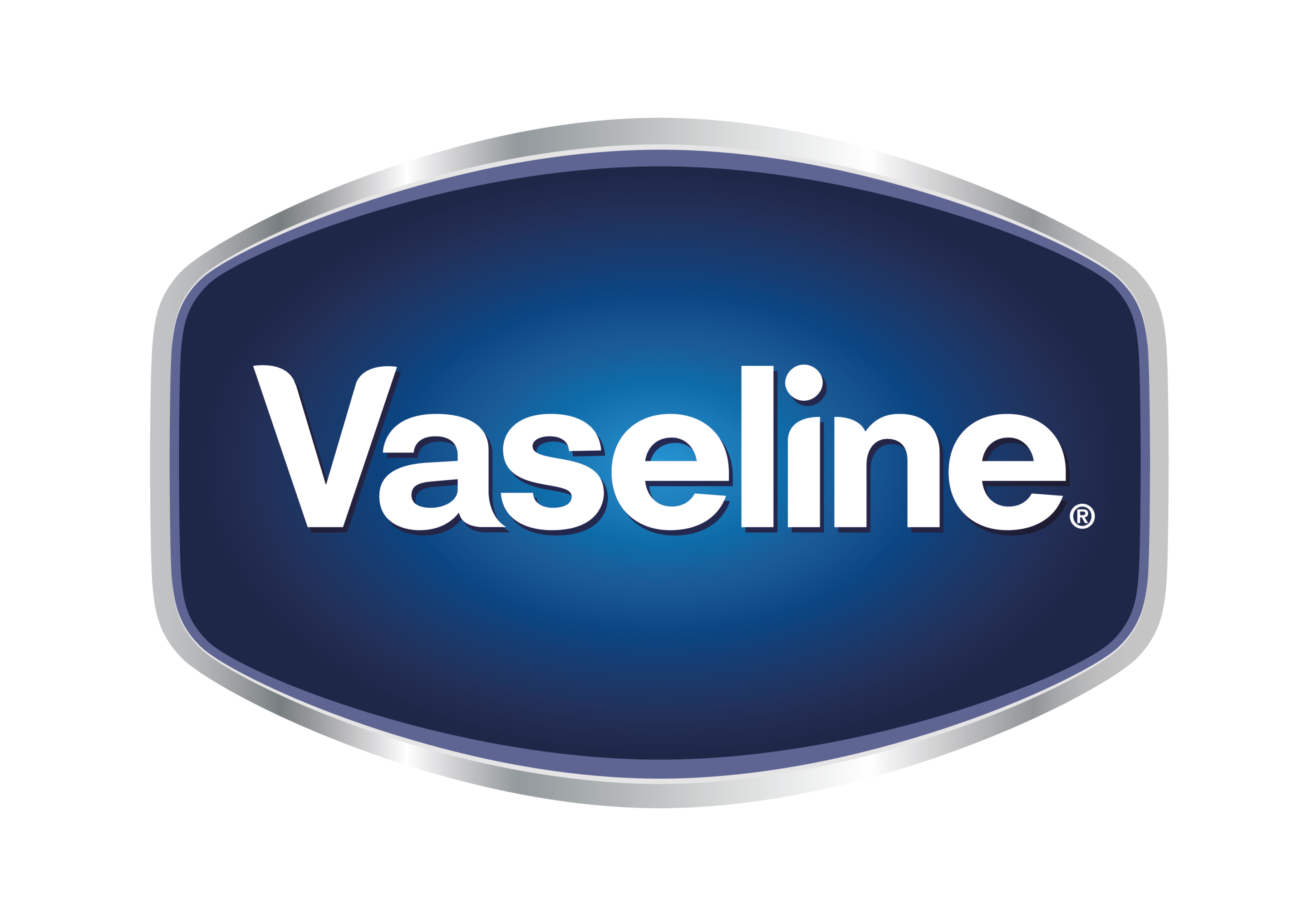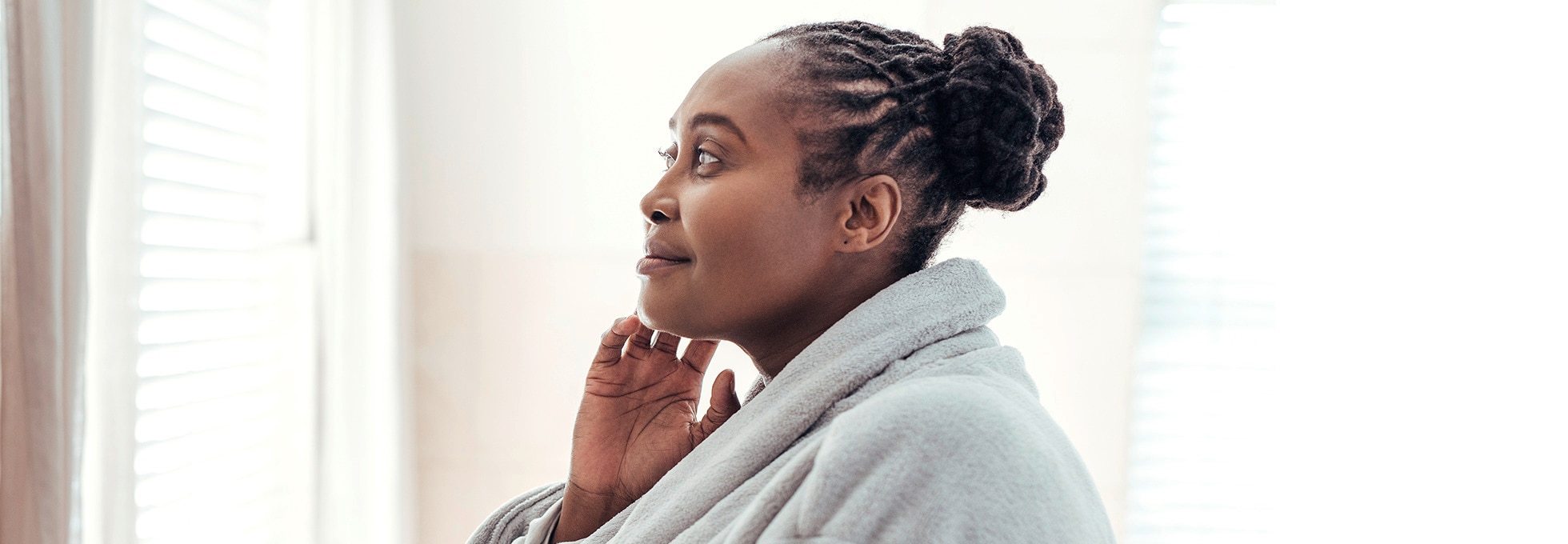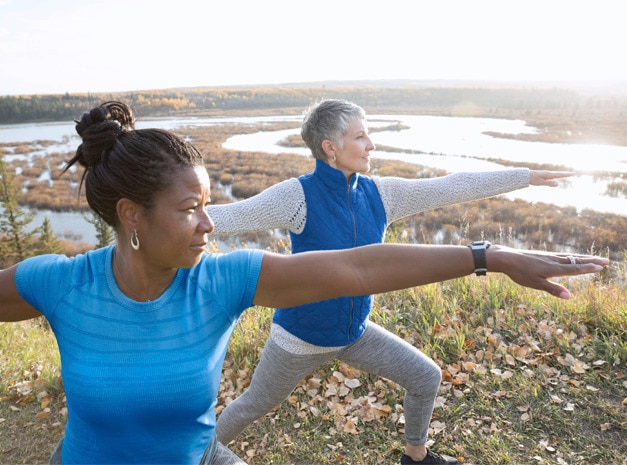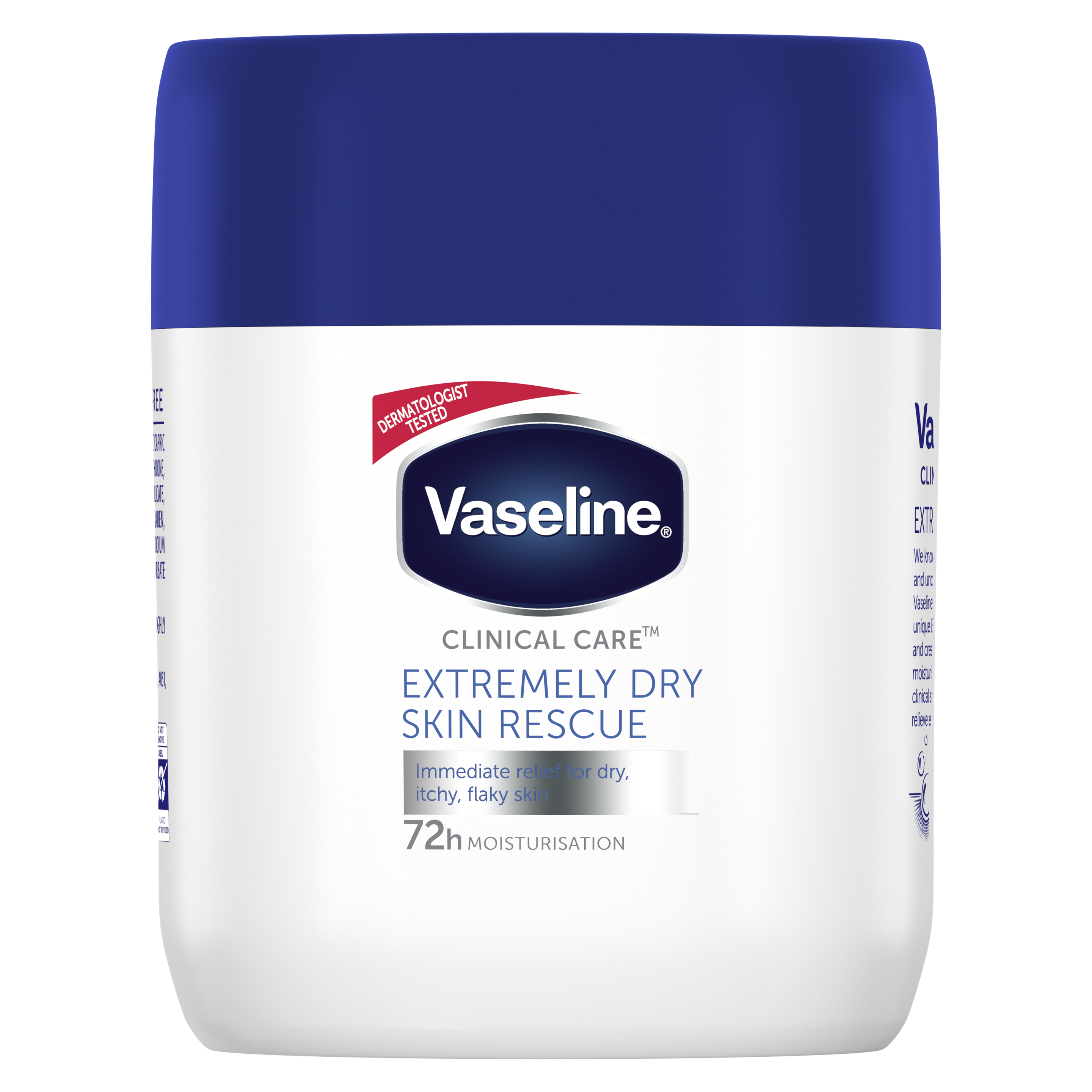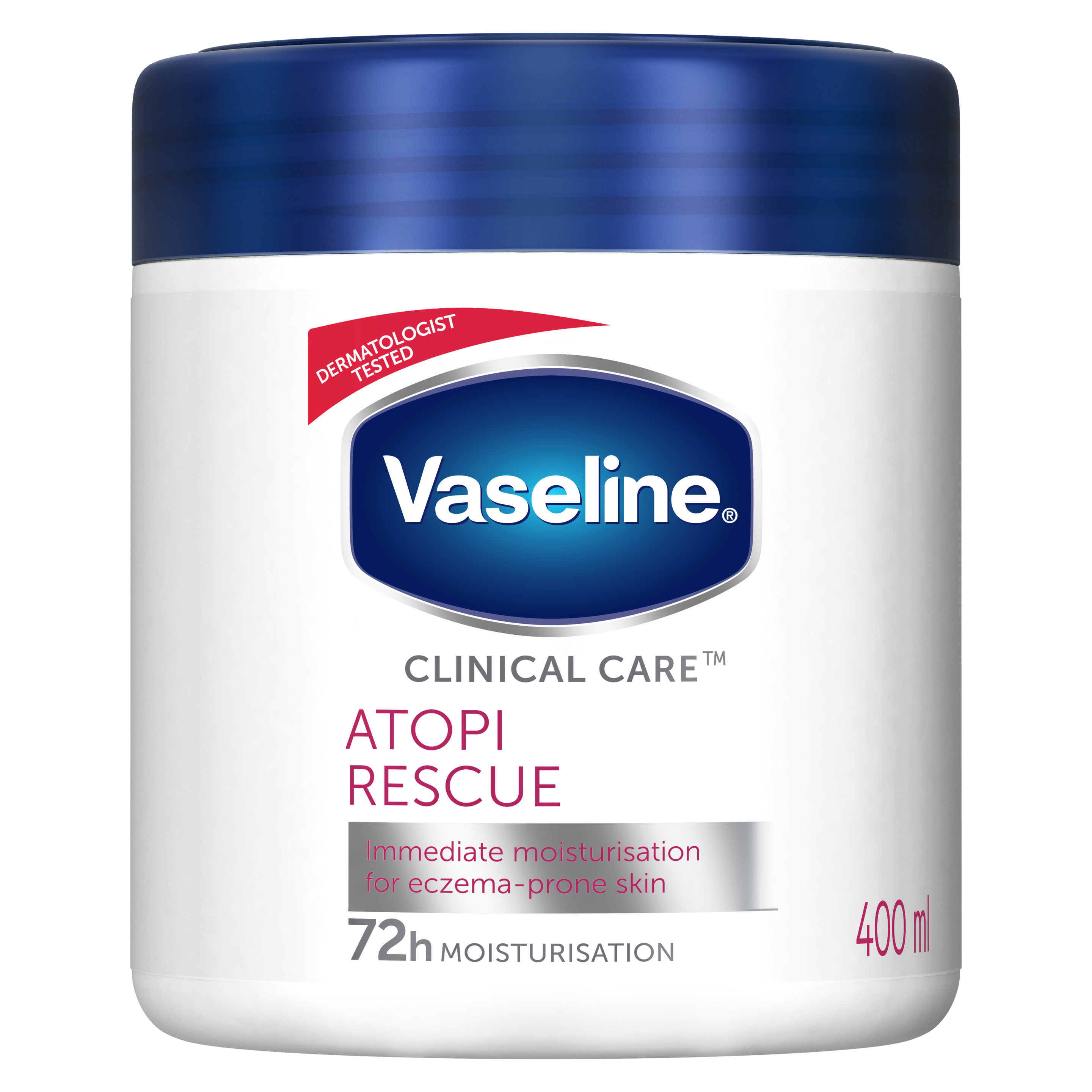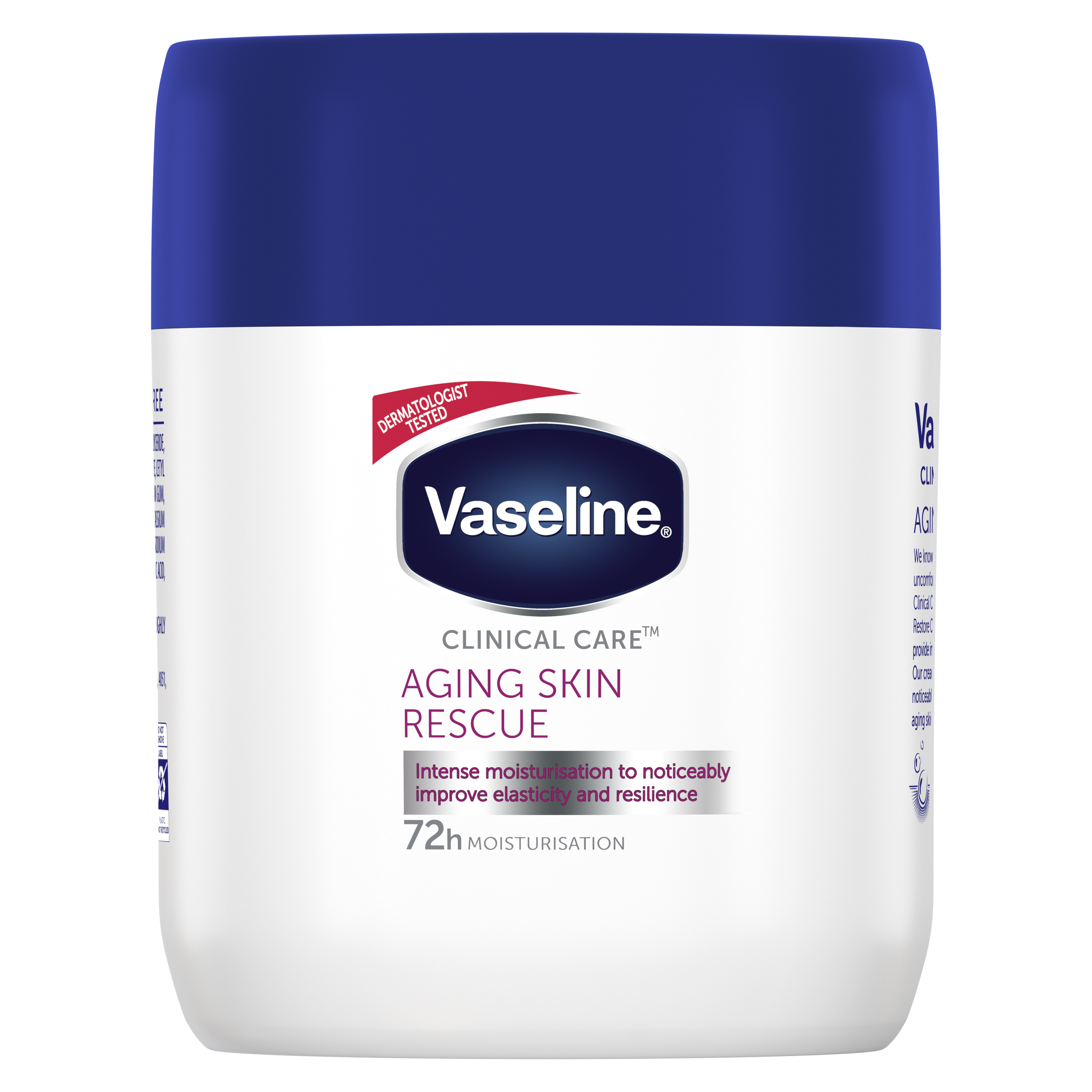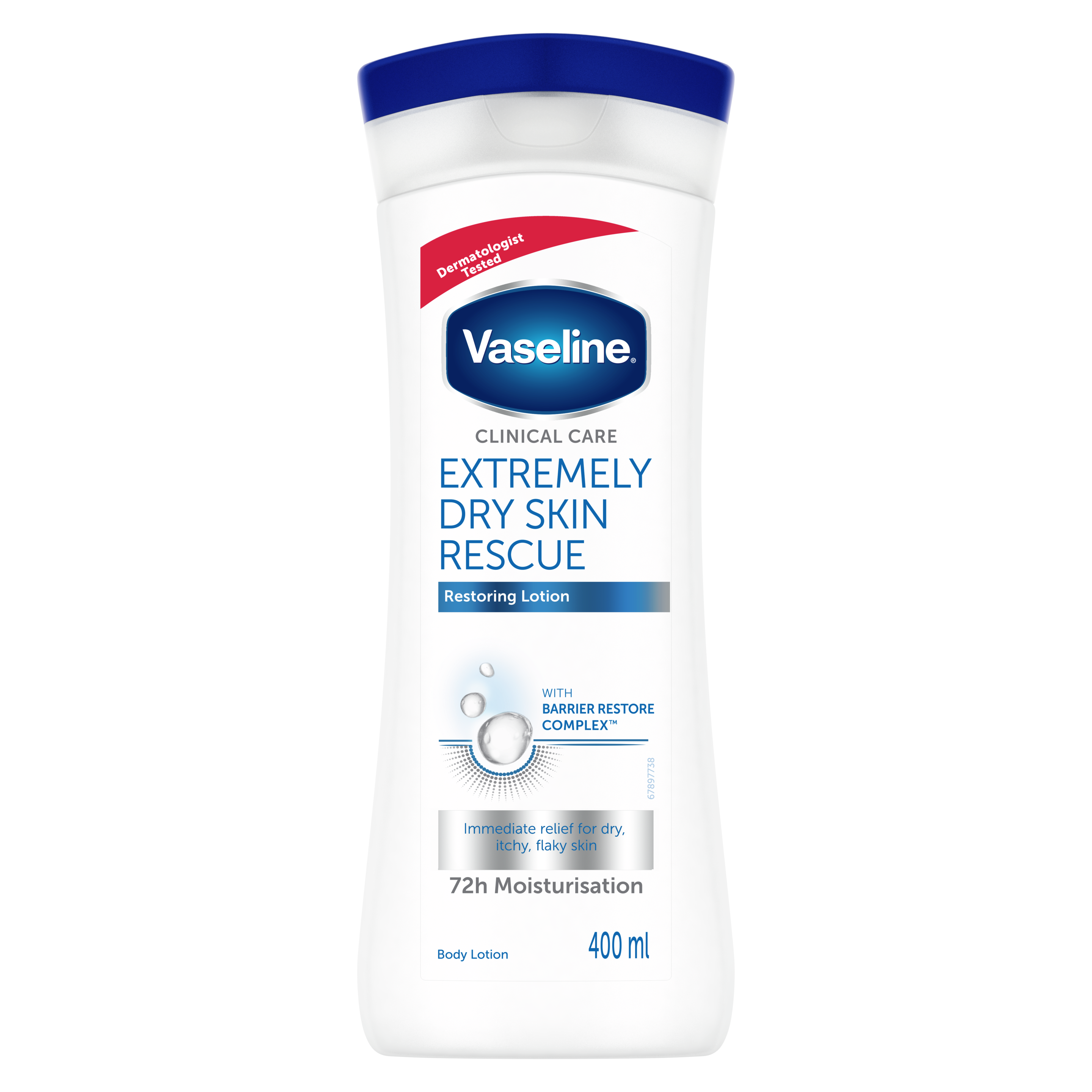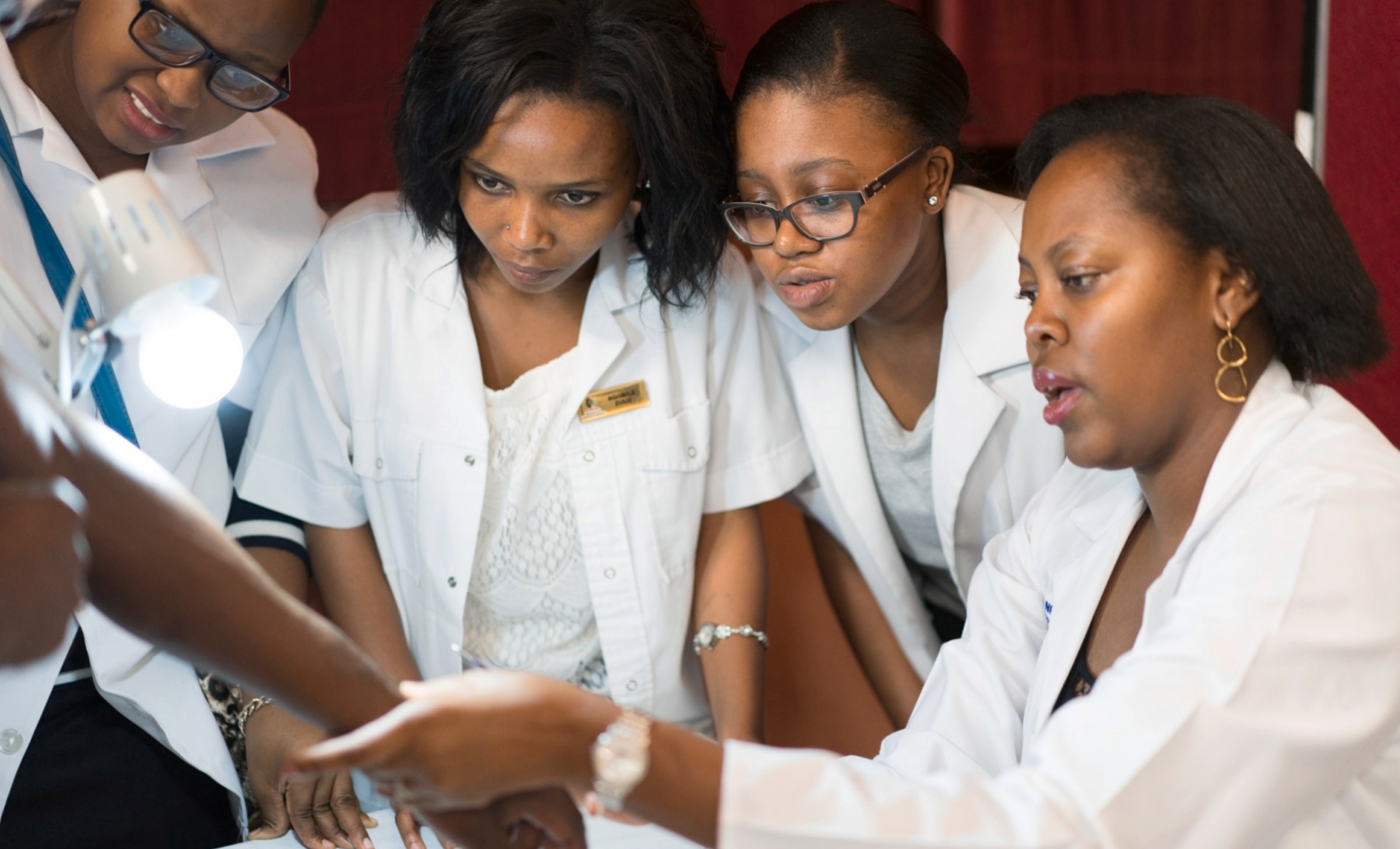Skip to content
Discover how to treat skin changes during menopause, including adult acne and facial hair.
Knowing what to expect from menopause can help you prepare for it. While some skin changes during menopause are inevitable, adapting your beauty routine can help minimize the overall effects.
- Why Does Menopause Affect Skin?
Menopause causes changes in your body. During perimenopause, production of estrogen – the “female hormone” – decreases. Estrogen stimulates collagen, the protein that gives skin its elasticity and keeps it healthy.
As estrogen declines, less collagen is produced. This is responsible for a number of the menopausal skin problems women experience.
- What Menopause Skin Changes to Expect
Most skin changes are minor and unlikely to make a difference to your daily life, others can be more challenging. Here we go through the main changes to expect and what you can do to minimize their effects.
Dry Skin – As well as controlling collagen levels, estrogen stimulates the production of oils that keep your skin moisturized. This lack of moisture can dry out your skin, causing itchiness.
What Can You Do? – Combat dry skin by having warm showers instead of hot. Wearing protective gloves in cold weather or even when sleeping can help the skin on your hands. Moisturize damp skin with Vaseline® Mature Skin Rejuvenation Lotion to revitalize dry skin.
Wrinkles – Wrinkles are one of the most familiar signs of aging. They’re caused by a decrease in natural oils in your skin. The fat in the deeper layers of skin starts to sag, leaving skin looser. This looseness causes a wrinkled appearance.
What Can You Do? – Every person will get wrinkles as they age. It’s perfectly natural, and rarely a cause for medical concern. There are plenty of products available to smooth the appearance of wrinkles. Retinoids are derivatives of vitamin A and have antioxidant properties that can help reduce the appearance of wrinkles. Ensure your diet features plenty of vitamin A to keep your skin looking healthy.
Adult Acne – This is common amongst menopausal women due to the changes in hormone levels. Adult acne can also be caused by stress. The body produces androgens (a hormone found in men and women) in stressful times. Androgens stimulate the oil glands, increasing the likelihood of acne.
What Can You Do? – Retinoids can also help to combat adult acne. They remove dead skin cells, essentially exfoliating your skin. Try to maintain a balanced diet and remember to take time out for yourself – stress is another key cause of acne.
Hair Loss – As well as adult acne, hormonal changes during menopause can cause hair loss. Menopause lowers estrogen and progesterone levels. These hormones help hair grow and last longer, so their declining production can cause hair to thin. The decrease of these hormones also increases the production of androgens (the hormones that increase oil production). Androgens shrink the hair follicles, causing hair loss. Hair loss can also be a sign of a thyroid issue so it’s worth checking with your doctor.
What Can You Do? – Hair loss relating to hormonal changes is temporary, but that may not stop you from feeling self-conscious. If your hair is thinning dramatically, or coming out in clumps, you should visit your doctor. Your doctor can investigate the cause and prescribe appropriate treatment.
Hair Growth – Some women also experience growth of facial hair, usually on the chin. There’s no clear reason as to why this happens, but it could be from fluctuating hormonal levels.
What Can You Do? – If you notice hair growing around your face, neck and chin, consult your doctor. Your doctor should be able to run a test to check your hormone levels and find out what’s happening. There are, of course, many easy ways to remove unwanted facial hair. Home methods such as shaving, waxing and plucking work well. For long term treatment, you could consider laser removal.
- Embracing Menopause
Menopause is a natural process that all women go through. While some symptoms may seem difficult to cope with at first, simply looking after yourself and your skin will help you to take menopause in your stride.
Expert Advice
The advice in this article does not constitute medical advice, it is solely available for information purposes.
RELATED PRODUCTS
- slide 1
- slide 2
- slide 3
- slide 4
- slide 5
- slide 6
